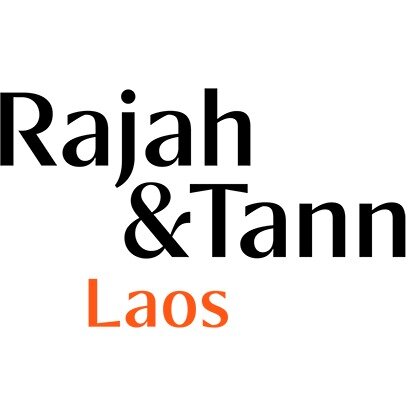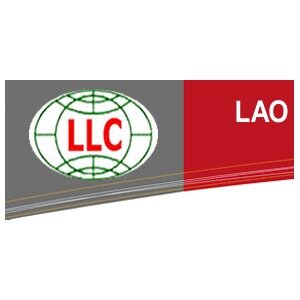Best New Business Formation Lawyers in Laos
Share your needs with us, get contacted by law firms.
Free. Takes 2 min.
Or refine your search by selecting a city:
List of the best lawyers in Laos
About New Business Formation Law in Laos
The legal environment for new business formation in Laos can be complex, mainly due to the country's rapidly developing economic policies. However, the Laotian government implements measures to encourage foreign investors and startups, making the country an increasingly attractive destination for commercial endeavors. The primary legislation that governs the establishment of new businesses is the Law on Investment Promotion 2016. It not only aids the development of domestic businesses but also opens avenues for foreign investments in various sectors. Additionally, new businesses also need to comply with the Law on Business 2013, which sets out the general legal framework for carrying out business operations in the country.
Why You May Need a Lawyer
Given the intricate nature of the laws governing business establishment in Laos, a lawyer can provide you with crucial assistance. Firstly, lawyers can help with the documentation and procedures required to establish a business legally. Moreover, they can offer guidance on understanding and navigating through investment incentives offered by the government. They can also assist in obtaining necessary permits and licenses, ensure compliance with local labor laws and regulations, and offer advice on tax issues. Finally, in case of any legal disputes or conflicts during the business setup or operation stages, legal professionals can offer necessary representation and guidance.
Local Laws Overview
The primary laws relevant to new business formation in Laos are the Law on Investment Promotion 2016 and the Law on Business 2013. The Law on Investment Promotion governs the granting of investment incentives to both domestic and foreign investors. It provides for the forms and methods of investment, as well as the rights and obligations of investors. On the other hand, the Law on Business provides for the legal entities that can be formed by investors, including private enterprises, partnership entities, and corporate entities. It also governs the business registration process, business licenses, and the general conduct of business operations in Laos.
Frequently Asked Questions
1. What is the first step in setting up a new business in Laos?
The first step is choosing and registering a business name with the appropriate governmental agency. This should be followed by the preparation of necessary paperwork, including the company's Article of Association.
2. How can a foreign investor establish a business in Laos?
Foreign investors can establish a business in Laos either independently or in partnership with local investors. They need to submit an investment application to the Ministry of Planning and Investment for approval.
3. What type of business structures can be formed in Laos?
Business structures in Laos range from sole proprietorships, partnerships, to various types of corporate structures such as Limited Liability Companies and Public Companies.
4. What are the main obligations of a new business in Laos?
New businesses in Laos have different legal, financial, tax, and business obligations which may include registering with local authorities, obtaining necessary licenses, and adhering to labor and safety regulations.
5. How long does it take to start a business in Laos?
The timeframe for starting a business in Laos varies depending upon the type of business, the sector in which it operates, and the efficiency of handling the legal and regulatory procedures. Generally, it can take several weeks to a few months.
6. Is there any special treatment for foreign investors?
The Law on Investment Promotion in Laos provides special treatment and incentives for foreign investors in several economic sectors to boost the country's economic growth.
7. How are disputes between businesses resolved in Laos?
Disputes between businesses in Laos are typically resolved through negotiation, mediation, and, if necessary, litigation in courts. Arbitration is becoming an increasingly popular method of dispute resolution as well.
8. How can I protect my intellectual property in Laos?
Business owners can protect their intellectual property in Laos by registering their patents, trademarks, and copyrights with the Intellectual Property Department.
9. What are the main challenges to new businesses in Laos?
Businesses in Laos often face challenges related to regulatory complexity, infrastructural deficiencies, scarcity of skilled labor, and issues related to legal enforcement.
10. Can a business in Laos be fully foreign-owned?
Yes, it is possible for a business in Laos to be fully foreign-owned, depending on the sector in which the business operates.
Additional Resources
The Ministry of Planning and Investment, Ministry of Industry and Commerce, and the Lao National Chamber of Commerce and Industry are useful resources for someone in need of legal advice for new businesses formation in Laos. These organizations provide a wealth of information on business registration, regulations, and incentives for new businesses.
Next Steps
If you require legal assistance for new business formation in Laos, start by consulting a local lawyer who specializes in commercial and corporate law. Ensure that you grasp all the fees, benefits, and potential risks that come with launching a business in Laos before making your decision.
Lawzana helps you find the best lawyers and law firms in Laos through a curated and pre-screened list of qualified legal professionals. Our platform offers rankings and detailed profiles of attorneys and law firms, allowing you to compare based on practice areas, including New Business Formation, experience, and client feedback.
Each profile includes a description of the firm's areas of practice, client reviews, team members and partners, year of establishment, spoken languages, office locations, contact information, social media presence, and any published articles or resources. Most firms on our platform speak English and are experienced in both local and international legal matters.
Get a quote from top-rated law firms in Laos — quickly, securely, and without unnecessary hassle.
Disclaimer:
The information provided on this page is for general informational purposes only and does not constitute legal advice. While we strive to ensure the accuracy and relevance of the content, legal information may change over time, and interpretations of the law can vary. You should always consult with a qualified legal professional for advice specific to your situation.
We disclaim all liability for actions taken or not taken based on the content of this page. If you believe any information is incorrect or outdated, please contact us, and we will review and update it where appropriate.
Browse new business formation law firms by city in Laos
Refine your search by selecting a city.












